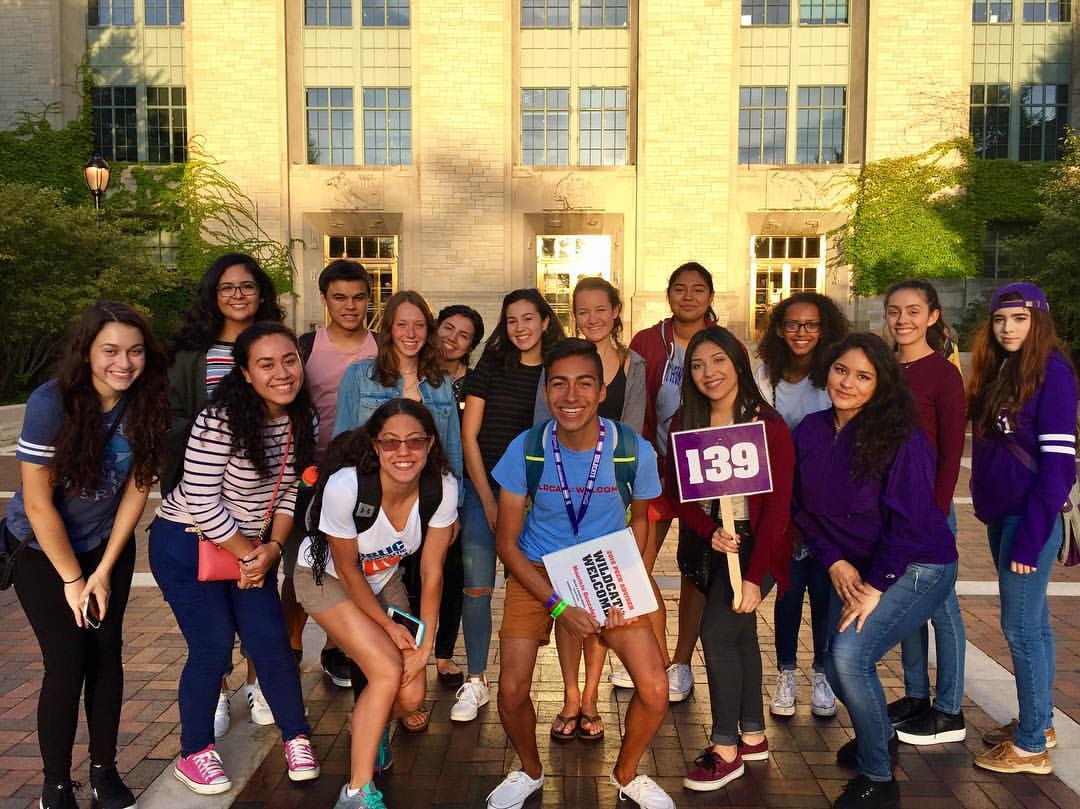“One of my favorite experiences was being a Peer Adviser for first-years, many of whom were also first-gen and low-income.”
At the end of last week, we wrapped up our 20-day #AccessNorthwestern social series. From May 20th through June 8th, we featured vital resources and support networks that foster access to our community for prospective students and current Wildcats.
If you followed along on Instagram, Twitter, Facebook, or Snapchat, you may have seen picture-perfect moments from different #free student events; or perhaps you browsed different scholarship opportunities on our Global Learning Office’s site and learned that financial aid travels with you; or maybe you found yourself at ease to learn that our Summer Internship Grant Program (SIGP) covers your living costs if you have an unpaid internship. Whatever you may have seen, I’d guess that you probably didn’t catch everything that we covered. (I personally wouldn’t have if I was on the outside looking-in)
Worry not; I’m recapping the general areas of these resources in this blog and plugging in more nuggets of knowledge (aka more links and commentary!) that we didn’t have time to cover in the series.
On a global scale, we partner with a number of community-based organizations: Sutton Trust, Ukraine Global Scholars, HALI Access Network (High-Achieving, Low-Income), She-Can, and Davis UWC Scholars, one of our largest partners since 2007. These incredible networks create access and provide a variety of resources (e.g. financial support, mentorship) to prospective students abroad. Organizations like these help us ensure that international students can access Northwestern at the application and financial aid stages, and along with our Office of International Student and Scholar Services, continue to support them every step of their way.
On a U.S.-national scale, we shouted-out several of our admission partners with whom we collaborate to bring some of the country’s most talented low-income students to our community. This community finds on-campus support through different organizations and mentorship programs housed through our Student Enrichment Services (SES) office. SES supported my journey as a first-generation and low-income student at Northwestern and continues to expand resources and advocacy networks for all first-generation, low-income, and or/undocumented students on campus.
But this expanded access didn’t and doesn’t just fall on the shoulders of SES and the students who make use of SES’s support. I thrived as a first-gen and low-income student at Northwestern because of the care that is emblematic of our broader community. Whether it was related to accessing professional experiences, research, clubs and organizations, Chicago, academic coalitions and support, or even my financial aid, I found that the people here not only sought to help me succeed in these areas, but also valued and always sought to empathize with my experiences.
I encourage you to click some of the purple text above and below, search up our #AccessNorthwestern hashtag, and/or watch our Instagram story highlight to learn more. As I said before, while we have come a long way as a community, we recognize that more work can be done to make Northwestern even more accessible to current and future Wildcats. Thankfully, this progress continues every day, and I continue to be proud to now shape the conversation as a member of the Admissions team. I encourage you to connect and engage in this ongoing conversation with us.
Finally, I would like to recognize the work and love that our late Vice President for Student Affairs, Patricia Telles-Irvin, dedicated in our expansion of access. A first-generation college student herself, she launched Northwestern’s office of Campus Inclusion and Community (CIC) where she and others established these resources and an ambiance of support for underrepresented students. We are saddened by her recent passing, but her incredible legacy will forever strengthen our community.
